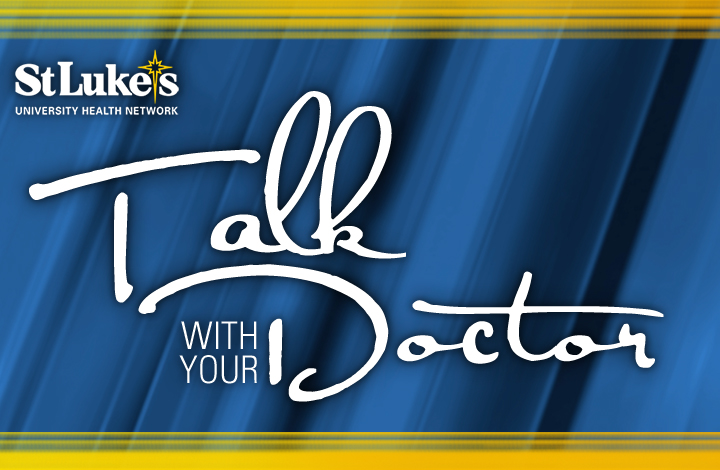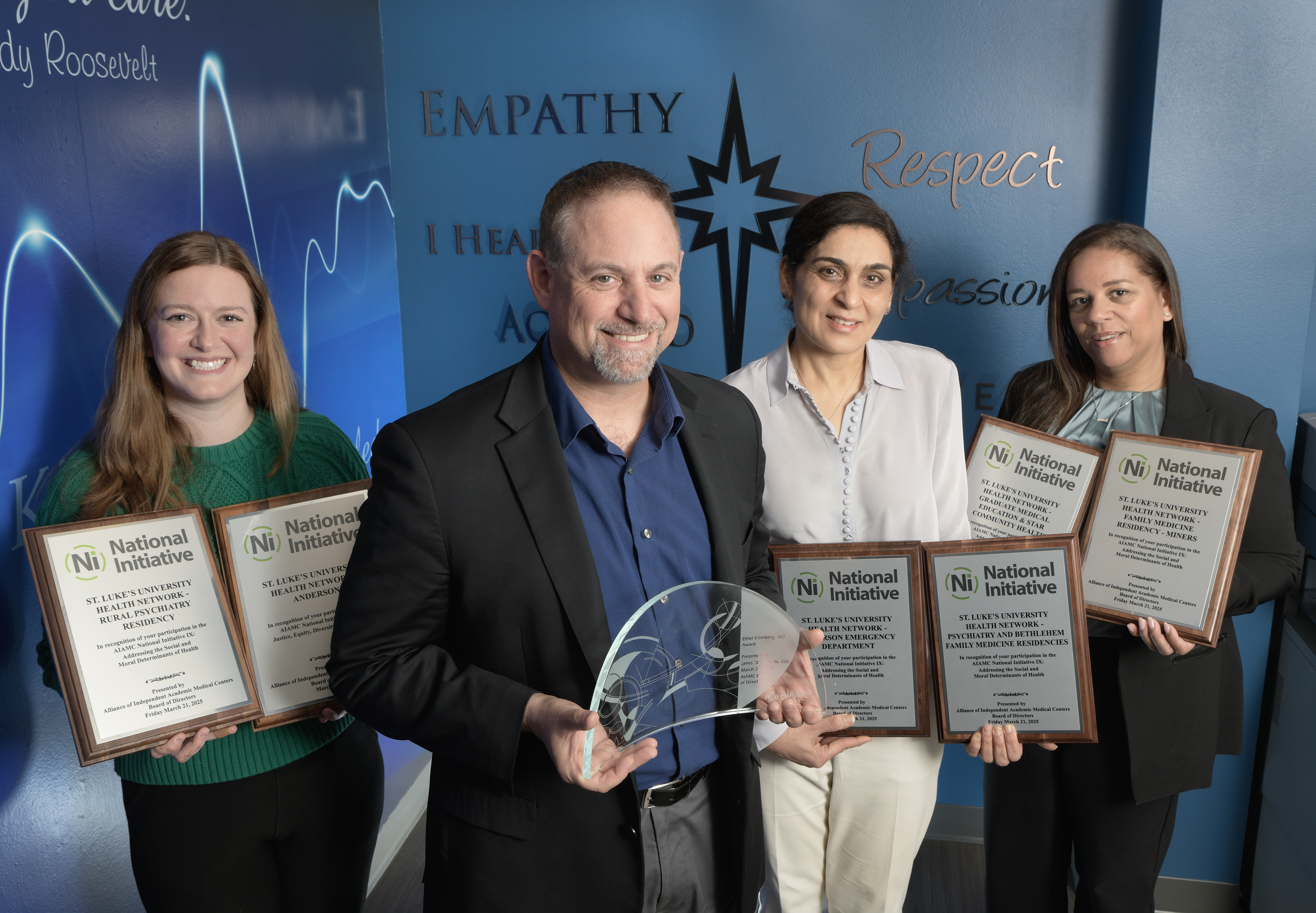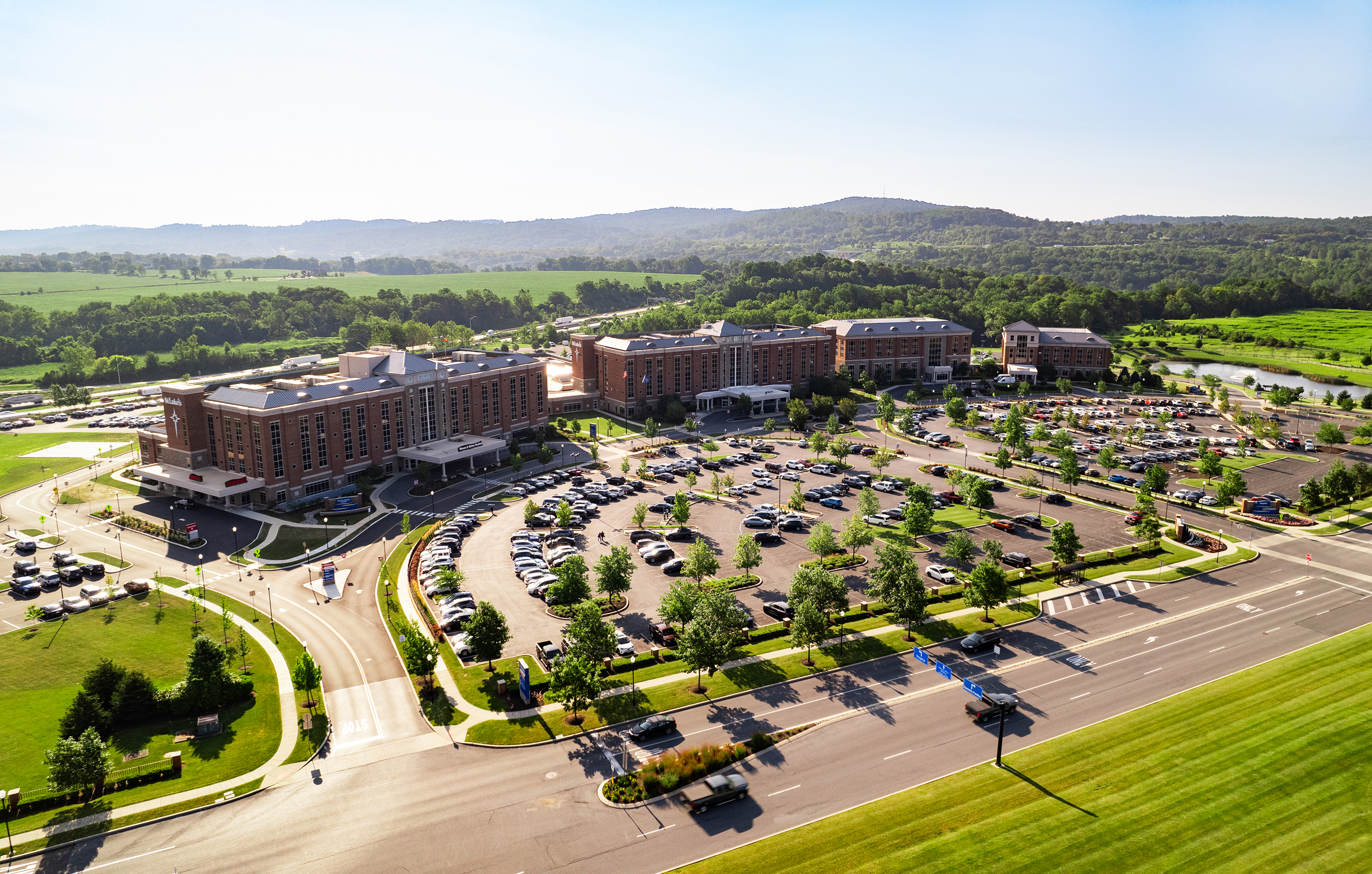St. Luke's Miners Helps Panther Valley Give Teens a Voice in Preventing Substance Misuse
September 03, 2019
It was the week before finals at Panther Valley Junior/Senior High School, and members of a new student group called STEP Up wanted to find a way to ease everyone’s worries.
Thus was born Chill Day. STEP Up members made and hung supportive posters in the hallways and manned a Wheel of Encouragement in the cafeteria. Instead of dashing to class in the morning, students got to spend the first 30 minutes of their day doing crafts, taking walks, playing video games and just plain chillin’.
“It’s something that was fun to do and you’re also helping people at the same time. It’s a very nice feeling,” said Thomas Greco, 17, a member of STEP Up.
Thomas Greco
STEP Up is among the initiatives spearheaded by St. Luke’s University Health Network through its Adopt a School program with the Panther Valley School District.
With the district serving as a hub, the Adopt a School program brings community partners together to improve the physical and mental health of students and their families. It is among many partnerships the Network has with school districts across the region, including Adopt a School programs in the Allentown, Bethlehem Area and Bangor Area school districts.
St. Luke’s-Miners partnered with Panther Valley in 2014 after a Community Health Needs Assessment showed a pressing need to help students and their families lead healthier lives – both physically and mentally.
The need is acute in Panther Valley, a district that straddles rural Carbon and Schuylkill counties. About 95 percent of its nearly 1,700 students are economically disadvantaged, according to the Pennsylvania Department of Education. The region has been particularly hard hit by opioid and substance use disorders.
In the last decade, opioid-related death rates more than doubled in Carbon County to 18.1 per 100,000 people while Schuylkill saw its rates go from 3.9 to an astonishing 24.5 deaths per 100,000 people, according to data compiled by St. Luke’s. That’s compared to Pennsylvania’s rate of 15.9 and the national rate of 14.1.
“We have grandparents raising grandchildren,” said Rosemarie Lister, Network Director, Community Based Rural Health Community Health & Preventive Medicine.
Along with substance use disorders, the relatively high rates of poverty among families can lead to a lack of resources for food, clothing and housing.
The Adopt a School program, funded by St. Luke’s-Miners with the help of grants, is part of a multi-pronged approach to helping students and their families.
Kerri Quick, the School and Community Coordinator for St. Luke’s-Miners, is stationed at Panther Valley Intermediate School so she can coordinate services and programs. She works hand-and-hand with Mary Ellen Greco, the intermediate school guidance counselor who serves as coordinator for the Adopt a School program. She is also Thomas’ mother.
The program provides a Mobile Youth Health Center, which stops twice a month at the district’s three schools to conduct well visit exams and mental health assessments to students whose families don’t have health insurance, can’t afford co-pays or don’t have transportation to providers. During the 2018-19 school year, 112 students were seen by the Mobile Youth Health Center.
Through Star Wellness, St. Luke’s provides a dental van that visits each school once a week to do exams and routine care such as cleanings and filling cavities. In the first half of 2019, the van made 36 visits to Panther Valley schools, more than in 2017 and 2018 combined.
It also arranges vision care, transporting students in need of exams to Dr. Barry Schneider in Tamaqua. In 2017-18, St. Luke’s took 69 students for vision care.
In addition, St. Luke’s provides programs and initiatives at all grade levels on topics that include literacy, diabetes, smoking, healthy relationships, depression awareness, nutrition and substance misuse prevention.
STEP Up also falls under St. Luke’s goal of helping the region improve prevention of substance abuse disorder as well as treatment, support and recovering services.
Last fall, St. Luke’s-Miners was awarded a $200,000 grant by the U.S. Health Resources and Services Administration to create a Rural Communities Opioid Response Plan in the Panther Valley and Tamaqua Area School District communities. HRSA recently followed up with a $1 million grant to implement a plan.
Lister said one way to help teens improve their health and educational outcomes is to keep them engaged.
In the spring, Quick and Greco started STEP Up, an idea that originated in 2016 at Tamaqua Area High School as a way to give students an activity they could join while also developing leadership skills. In turn, club members organize and run activities that encourage healthy living and help classmates feel better about themselves.
“We’re trying to move the needle in the community and in school, and we’re asking students to help us move the needle,” Lister said.
To get the club going at Panther Valley High, Quick and Greco approached students who then asked others to join. The club has about 25 members.
“We try to help students find positive activities,” said Thomas, who is a senior.
Thomas said simple things such as the Wheel of Encouragement can cheer up students. At lunch, students could spin the wheel to see what gesture of good will – such as a joke, compliment or high five – would come their way from STEP Up students. “The kids seemed to like it,” Thomas said.
This school year, Thomas said, STEP Up members plan to organize events throughout the year. One idea is to turn Chill Day into a whole week. Another is to have STEP Up members serve as mentors to intermediate and elementary students.
Greco, the Panther Valley guidance counselor, said Panther Valley is thrilled to have the support of St. Luke’s. “They’ve really done so much to help our students,” she said.
She praised Quick’s role in the endeavor. “Kerri is a huge, huge resource for us. I just can’t tell you how much she does for us. She has excellent rapport with the students and the parents. I don’t think I could do without her,” Greco said.
Lister said the effort is already paying off. The annual Pennsylvania Youth Survey is showing Panther Valley students reporting a reduction in substance abuse, including a 10% point drop in students reporting drinking alcohol in the past 30 days.
“Every year, we have been able to build on the foundation of the Adopt a School program,” Lister said. “Now that we have a foundation in place and built partners, we can take on something like the opioid epidemic and put Panther Valley in a leadership position to identify solutions and partner to improve and sustain overall health.”
* This program is supported by the Health Resources and Services Administration (HRSA) of the U.S. Department of Health and Human Services (HHS) as part of an award totaling $200,000 with 43% percentage financed with nongovernmental sources. The contents of this news release are those of the author and do not necessarily represent the official views of, nor an endorsement, by HRSA, HHS or the U.S. Government.
Philanthropic support allows St. Luke’s University Health Network to deliver world-class care that makes a difference every day for every patient. Make a gift online to a St. Luke’s cause that’s meaningful to you, or call the Development Office at 484-526-3067 to learn more.
About St. Luke’s
Founded in 1872, St. Luke’s University Health Network (SLUHN) is a fully integrated, regional, non-profit network of more than 15,000 employees providing services at 10 hospitals and 300 outpatient sites. With annual net revenue greater than $2 billion, the Network’s service area includes 11 counties: Lehigh, Northampton, Berks, Bucks, Carbon, Montgomery, Monroe, Schuylkill and Luzerne counties in Pennsylvania and Warren and Hunterdon counties in New Jersey. Dedicated to advancing medical education, St. Luke’s is the preeminent teaching hospital in central-eastern Pennsylvania. In partnership with Temple University, St. Luke’s created the Lehigh Valley’s first and only regional medical school campus. It also operates the nation’s longest continuously operating School of Nursing, established in 1884, and 34 fully accredited graduate medical educational programs with 263 residents and fellows. St. Luke’s is the only Lehigh Valley-based health care system with Medicare’s five- and four-star ratings (the highest) for quality, efficiency and patient satisfaction. St. Luke’s is both a Leapfrog Group and Healthgrades Top Hospital and a Newsweek World’s Best Hospital. In 2019, three of IBM Watson Health’s 100 Top Hospitals were St. Luke’s hospitals. St. Luke’s University Hospital has earned the 100 Top Major Teaching Hospital designation from IBM Watson Health seven times total and five years in a row. St. Luke’s has also been cited by IBM Watson Health as a 50 Top Cardiovascular Program. Utilizing the Epic electronic medical record (EMR) system for both inpatient and outpatient services, the Network is a multi-year recipient of the Most Wired award recognizing the breadth of the SLUHN’s information technology applications such as telehealth, online scheduling and online pricing information. St. Luke’s is also recognized as one of the state’s lowest cost providers.
Read More NewsLatest News


April 10, 2025
National Recognition for SLUHN Graduate Medical Education

April 09, 2025
In Safe Hands Award

April 08, 2025
